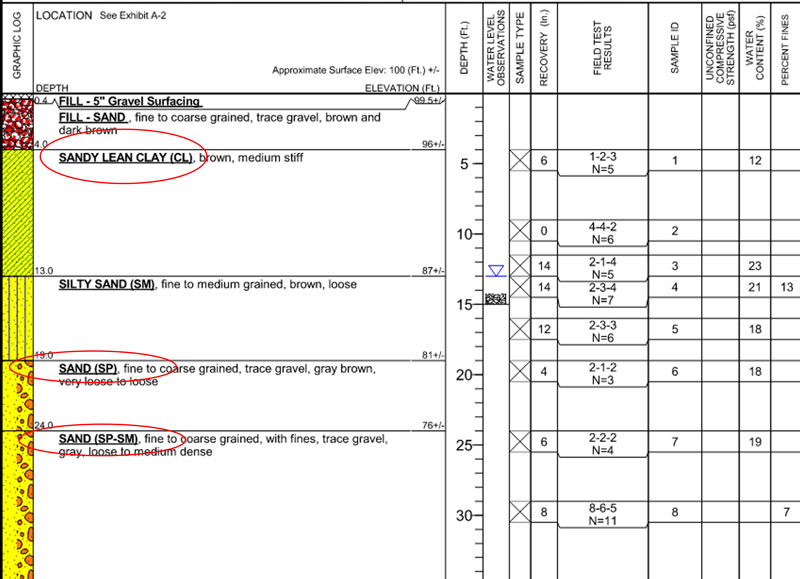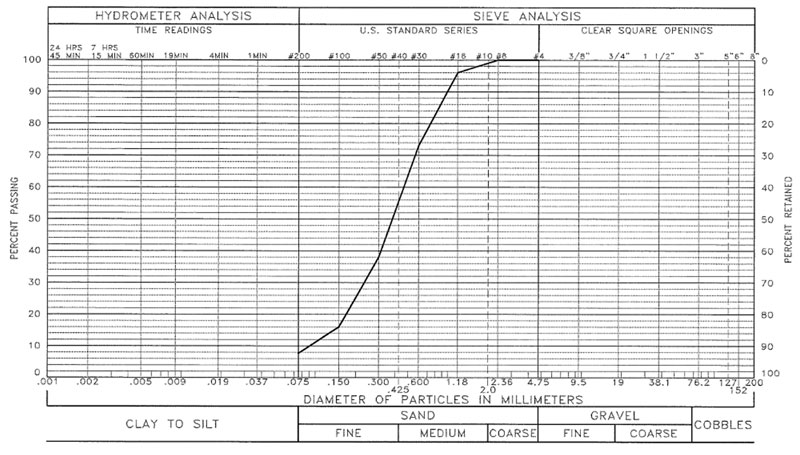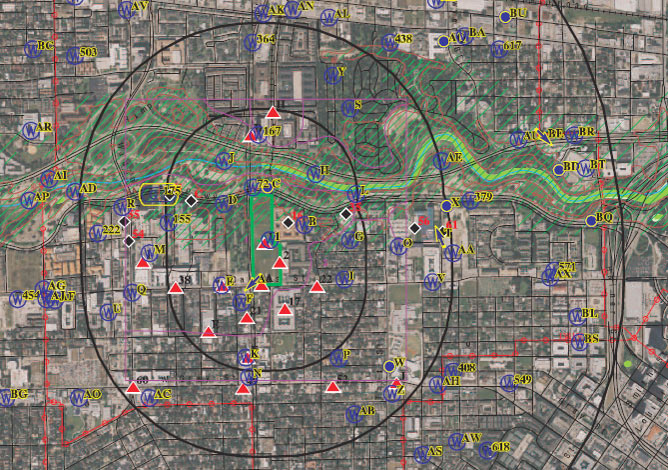Understanding Site Hydrology
Understanding the hydrogeology of a site is key to preparing an accurate and efficient dewatering design. Knowing the geologic setting helps determine the type of dewatering system necessary and the practical methods for installation.
A thorough geotechnical site investigation should be a part of every successful dewatering program and should consider several available pieces of information, namely:
Geotechnical Reports
Geotechnical reports provide insight into a site’s stratigraphy and hydrogeologic parameters. The report includes valuable information about the geologic setting and may include, boring logs, lab analysis (sieve analysis), and pump test data.


Geologic Setting
Learning about the depositional environment is key to understanding how a particular soil may behave and changes that may occur during dewatering system installation and subsequent pumping operations. Three common types are alluvial, glacial, and coastal.
Alluvial (River Deposit)
- Granular material
- Consist of clay & sand/gravel layer
- Particle size is driven by river velocity
- Typically, higher hydraulic conductivities
Glacial
- Very coarse to very fine
- Well graded (wide range of grain size) & dense
- Mixture of soil (till)
- Wide range of hydraulic conductivities
Coastal
- Uniform clean sands (beaches), but depends on environment & source material
- Some environmets contain limestone/coral
- Tidal influence on dewatering system
- Hydraulic conductivities can range from moderate (sand) to extremely high (porous limestone)
Boring Logs
Boring logs are based on soil samples obtained using one of several drilling methods and analyzed to investigate subsurface conditions. The log describes the subsurface conditions and helps determine the following:
- Depth to water
- Soil type
- Aquifer depth/thickness
- Drilling characteristics
- Hydraulic conductivity
Sieve Analysis
A sieve analysis performed on the soil samples and determines the soil grain size (fine/medium/coarse) and soil grain uniformity. Soil samples are run through a pre-determined series of sieves, allowing a specific grain size to pass through.
The soil mass retained on each sieve is plotted on semi-log paper to create a gradation. This gradation is utilized to determine the well screen slot size and filter pack properties along with an estimate of the hydraulic conductivity of the soil.
Pump Tests
Pumping tests help determine an aquifer’s hydraulic conductivity, transmissivity, and storativity. The common pump tests are constant-rate, step-drawdown, and recovery tests. These tests provide a much broader set of information about the aquifer and are much more accurate than parameter estimations based on grain size or soil descriptions alone.
When practical, a pump test should be conducted for every dewatering project, either during the design phase or during installation of the dewatering system.
READY FOR YOUR PROJECT?

